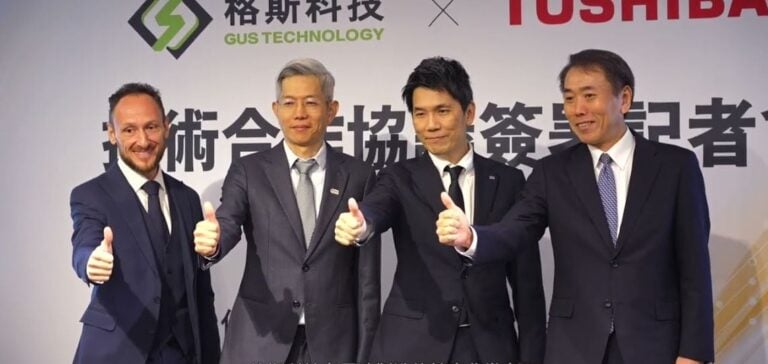GUS Technology, a Taiwan-based battery manufacturer, and Toshiba Corporation, a Japanese multinational technology company, have signed a partnership focused on the development of lithium-ion batteries featuring an anode made of niobium titanium oxide (NTO). This agreement includes technical support and technology licensing.
The primary objective of this collaboration is to produce battery cells with improved features, including extended lifespan and enhanced temperature tolerance. Toshiba will provide technical support for the development, while GUS Technology will concentrate on manufacturing these batteries as an Original Design Manufacturer (ODM).
Support from International Partners
The project is backed by Companhia Brasileira de Metalurgia e Mineração (CBMM) and Sojitz Corporation, which contribute to material sourcing and funding. CBMM is a supplier of niobium, a key material for NTO batteries, while Sojitz provides logistical and investment support for this initiative.
Technical Characteristics of the Batteries
The batteries developed under this framework are designed to offer higher energy density compared to current technologies, with fast-charging capabilities and enhanced safety. They aim to meet the demands of various sectors, including electric vehicles, industrial logistics, and energy storage systems.
Anticipated Applications
These batteries could be used in electric vehicles, energy recovery systems, and industrial applications where performance and reliability are critical. Their specifications include an extended temperature range and longer lifecycle, suitable for diverse use cases in demanding environments.
Strategic Challenges
This partnership aims to strengthen the industrial and technological capacities of both companies in a growing global market. The features of NTO batteries address a rising demand for durable and efficient solutions in the energy and transportation sectors.





















